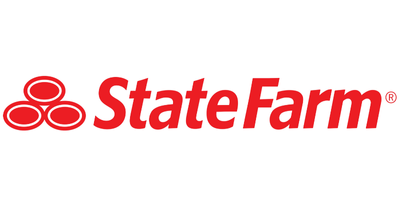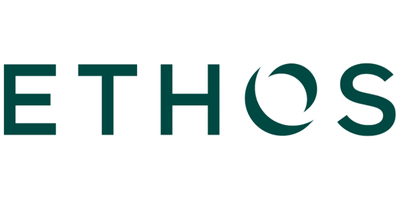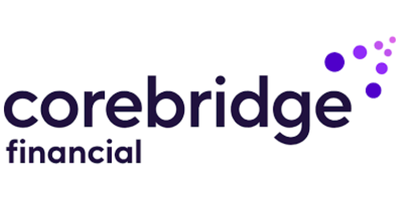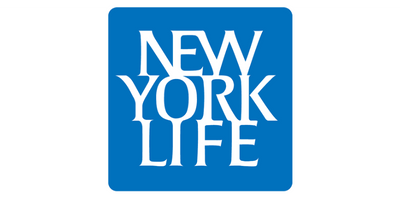Overview
Let’s be honest…Life insurance isn’t exactly the most exciting topic. But if you’re a young adult juggling rent, bills, maybe a family (or even just a dog you spoil too much), it’s something worth thinking about.
Life insurance is basically a safety net for the people you care about. It helps cover big things, like mortgage payments, debts, or daily expenses if something unexpected happens to you. And the good news? It doesn’t have to be expensive or complicated anymore.
These days, getting covered is easier than ever. Many companies let you compare quotes, apply, and get approved online. In this guide, we’ll break down why life insurance matters for millennials, what it actually costs, and how you can buy it without the hassle.
Why Young Adults Need Life Insurance
Many young adults skip life insurance because it feels like something for “later.” However, later has a funny way of showing up quickly, and the younger you are when you get coverage, the cheaper it is.
Here’s why it’s worth paying attention to now:
You’ve got people depending on you. Whether it’s a partner, kids, or even parents you help support, life insurance makes sure they’re taken care of if something happens.
You’ve got debt. Those student loans, car payments, or shared credit cards don’t necessarily disappear. Life insurance can help cover them so loved ones aren’t left with the bill.
You’re building your future. Getting coverage now locks in low rates that stay with you as you build a career, buy a house, or start a family.
You want peace of mind. Even if you’re single, having a policy can cover final expenses or leave something behind for family or a cause you care about.
Bottom line? Life insurance isn’t just for parents or homeowners; it’s for anyone who wants to protect the people (and goals) that matter most.
The Rundown
Best for customer satisfaction: State Farm
Best for being a friendly, trustworthy insurer: Amica
Best for no-hassle insurance: Ethos
Best for lots of options under one roof: Corebridge
Best for term life insurance: Protective
Best overall: MassMutual
Best for no-medical exam life insurance: Mutual of Omaha
Best for whole life insurance: New York Life
Best for riders: Nationwide
- Best for: Customer satisfaction
State Farm
Details:
State Farm is one of the most recognizable names in insurance, known for its catchy slogan, “Like a good neighbor, State Farm is there.” As of 2024, State Farm had nearly $1.2 trillion in life insurance policies in force. It’s currently the eighth-largest life insurance company, with just about 3% of the total market share in the U.S.
Why we like it
In J.D. Power’s 2024 Individual Life Insurance Study, State Farm was ranked #1 for overall customer satisfaction out of 21 companies. It also receives far fewer complaints than expected for its size. If you’re not sure what type of life insurance is right for you (or how much coverage you need), State Farm offers online tools and calculators to help you decide.
Pros & Cons
Pros:
Highest rated life insurer for overall customer satisfaction
Receives few complaints from customers
Helpful online tools and life insurance calculators
Cons:
Can’t purchase a life insurance policy online
Coverage isn’t available in Massachusetts or Rhode Island
- Best for: Being a friendly, trustworthy insurer
Amica
Details:
Amica is a friendly, mutual insurance company that’s been around since 1907. Headquartered in Rhode Island, they started with auto insurance and eventually expanded to include home and life coverage. Because they're mutual, their policyholders own the company, which often means more focus on customer service and value.
Why we like it
Backed by over a century of trust and top-tier financial strength, Amica brings both reliability and solid coverage to the table. Their term and whole life policies are both flexible and accessible, and they consistently earn high marks for customer satisfaction.
Pros & Cons
Pros:
Known for its great customer service
Offers convenient features like medical-exam waivers, accelerated death benefit riders, and disability waiver rider (where available)
Cons:
Rider options can be a bit limited depending on your state or policy type.
Slightly less transparency on online pricing, though quotes are available via the site.
- Best for: No hassle life insurance
Ethos
Details:
Founded in 2016, Ethos is a modern insurtech company that makes buying life insurance quick and painless. Instead of acting as a traditional insurer, Ethos partners with big-name carriers like Legal & General America, Ameritas, and Mutual of Omaha to offer policies. Everything is handled online, from application to approval, which is a big draw for people who want life insurance without all the paperwork and medical appointments.
Why we like it
Ethos is a great choice if you’re looking for convenience. Most applicants can skip the medical exam and get coverage in minutes, all from their phone or laptop. On top of that, you’re still backed by established, financially strong insurers, so you don’t have to sacrifice peace of mind for speed.
Pros & Cons
Pros:
Super fast and simple application
Partners with highly rated insurers, so policies are solid.
Many people get same-day approval
Cons:
Not a ton of customization compared to traditional insurers.
Customer support is mostly email-based
Only offers term life and a small whole life option (no universal or variable policies).
- Best for: Lots of options under one roof
- Term Life Insurance
- Permanent Life
- Final-Expense Life Insurance
- Universal Life (including Variable Universal Life)
Corebridge
Details:
Corebridge Financial is the rebranded successor of AIG's life insurance and retirement business. Based in Houston, it spun off into its own public company in 2022 and now offers a full suite of insurance and retirement products. Their life insurance lineup includes term, permanent, universal, and final-expense policies.
Why we like it
Corebridge delivers flexibility and dependability in one package. Whether you’re after simple term coverage, a policy that builds cash value, or something to help with final expenses, they’ve got options to match. Plus, being backed by the legacy of AIG and having a strong financial reputation gives extra peace of mind.
Pros & Cons
Pros:
Backed by a well-known, financially stable parent company with a long history.
Some policies are delivered fast, like in as little as 24 hours
Offers a full range of policies
Cons:
Their public-facing info is a bit light
Universal life policies are available but seem less prominently marketed
- Best for: Term life insurance
Protective
Details:
Protective was established in 1907 and has been selling life insurance products to individuals and families for more than a century. In addition to life insurance, Protective also has retirement products, commercial mortgages, and asset protection plans. The company is based in Birmingham, Alabama.
Why we like it
Protective offers term life insurance policies with terms ranging from 10 to 40 years (most insurers cap term limits at 30 years). The company offers coverage amounts between $100,000 and $50 million, and rates start as low as $25 per month. You can get a quote on Protective’s website, and apply either online or by phone.
Pros & Cons
Pros:
You can get term life insurance for up to 40 years
Online quotes and applications available for term life
Term life has a maximum coverage limit of $50 million
Cons:
Fewer riders available than some competitors
Most term life policies require a medical exam
- Best for: Overall life insurance
MassMutual
Details:
MassMutual is a mutual life insurance company, which means it’s wholly owned by its policyholders. The Boston-based insurer offers life insurance policies and retirement products in all 50 states and Washington D.C. It’s one of the oldest life insurance companies, founded in 1851.
Why we like it
MassMutual stands out for its impressive customer satisfaction score, earning one of the top spots in J.D. Power’s 2024 Individual Life Insurance Study. MassMutual offers many different types of life insurance, and it’s easy to compare policies on its website. It also receives far fewer complaints than expected for its size, according to the National Association of Insurance Commissioners (NAIC).
Pros & Cons
Pros:
Excellent customer satisfaction score
Good variety of policy options
Can file claims online
Cons:
Doesn’t offer online policy sales
Most policies require a medical exam
- Best for: No-medical exam life insurance
Mutual of Omaha
Details:
Mutual of Omaha is a Nebraska-based life insurance company that was founded in 1909. Currently, the company has more than 6.7 million policies in force and over 19 million members. It’s the 15th-largest life insurer, with just under 2% of the total market share.
Why we like it
If you’re looking for a life insurance policy that doesn’t require a medical exam, Mutual of Omaha is a good option. The company offers guaranteed issue whole life policies for eligible applicants between the ages of 45-85, or 50-75 in New York. Additionally, certain people can get up to $300,000 in term life insurance without an exam.
Pros & Cons
Pros:
Eligible applicants can get term life and whole life without an exam
Above-average customer satisfaction rating
Can get quotes and apply online for some policies
Cons:
More complaints than expected for its size
Must work with a financial professional to buy a policy
- Best for: Whole life insurance
New York Life
Details:
New York Life is the third-largest life insurance company, with just over 6% of the total market share. As of 2024, it had almost $13 billion in direct premiums written, according to the NAIC.
Why we like it
When you get whole life insurance through New York Life, you’re eligible to earn annual dividends based on the company’s financial performance. In 2025, New York Life announced its biggest dividend payout in history, $2.5 billion. We also like that New York Life offers accumulation-focused whole life policies, which can help you earn more cash value.
Pros & Cons
Pros:
Offers dividend-paying whole life insurance
Has accumulation-focused whole life insurance policies
Fewer complaints than expected
Cons:
Below average customer satisfaction score
Can only get a quote or buy a policy through an agent
- Best for: Riders
- Term life insurance
- Whole life insurance
- Universal life insurance
- Indexed universal life insurance
- Variable universal life insurance
Nationwide
Details:
Nationwide has 3.6% of the total life insurance market share, which makes it the seventh-largest life insurer overall. The company was founded in 1926 and is based in Columbus, Ohio.
Why we like it
If you want to customize your life insurance policy, Nationwide could be a good pick. The company offers a great selection of optional riders, like a premium waiver rider, estate protection rider, accidental death benefit rider, and waiver of monthly deductions rider. Many Nationwide life insurance policies automatically include chronic illness, critical illness, and terminal illness riders.
Pros & Cons
Pros:
Wide selection of life insurance riders
Good customer satisfaction rating
Cons:
Can’t get a quote online for permanent life insurance
Doesn’t offer 24/7 customer service
How Much Does Life Insurance Cost
Here’s the good news: life insurance is surprisingly affordable when you’re young and healthy. For most young adults, a solid term life policy costs less than their monthly streaming subscriptions combined.
To give you an idea, here’s what you might pay:
| Age | Coverage | Term | Average Monthly Cost* |
| 25 | $500,000 | 20 years | $15–$20 |
| 30 | $500,000 | 20 years | $18–$25 |
| 35 | $500,000 | 20 years | $22–$30 |
*Estimates for a healthy, non-smoking applicant.
A few things that affect your rate:
Age and overall health
Whether you smoke or vape
The amount and length of coverage
If you choose a no-exam or traditional policy
For most people, term life insurance makes the most sense. It’s affordable and covers you during the years you need it most (like while raising kids or paying off a mortgage). Whole or permanent life insurance can build cash value over time, but it’s pricier and better suited for long-term financial planning.
How to Buy Life Insurance Online
Buying life insurance used to mean meeting with an agent and filling out endless forms. Now? You can do the whole thing on your laptop or phone, sometimes in under 15 minutes.
Here’s how it usually works:
Compare quotes. Use an online marketplace or visit company websites to see what different insurers offer.
Pick your coverage. Decide how much protection you want and how long you’ll need it (term vs. whole life).
Fill out an application. Answer a few questions about your health, job, and lifestyle. Some companies skip the medical exam entirely.
Get approved and start coverage. Once you’re approved, you can sign electronically, set up payments, and you’re covered, simple as that.
The best life insurance companies for millennials are the ones that make this process smooth, transparent, and totally digital. No pressure, no jargon, and no waiting weeks for a decision.
FAQ's
What is life insurance and how does it work?
Life insurance is a contract between you and an insurance company. You pay a monthly or annual premium, and in return, the insurer promises to pay a lump sum (called a death benefit) to your chosen beneficiary if you pass away while the policy is active. That money can be used for anything, like covering living expenses, paying off debts, or funding future needs such as college tuition.
Do I really need life insurance?
It depends on your situation. If you have dependents, like children, a spouse, or even parents who rely on you financially, life insurance can help ensure they’re protected if something unexpected happens. If you’re young, single, and debt-free, you may not need coverage right away, but buying a policy early can lock in lower rates for the future.
What’s the difference between term life and whole life insurance?
Term life insurance covers you for a set number of years (like 10, 20, or 30 years) and is usually the most affordable option. Whole life insurance, on the other hand, lasts your entire lifetime and includes a cash value component that grows over time. Term is great for straightforward, budget-friendly protection, while whole life can make sense if you want permanent coverage or are interested in the savings feature.


















 by your friends at The Daily Navigator
by your friends at The Daily Navigator



